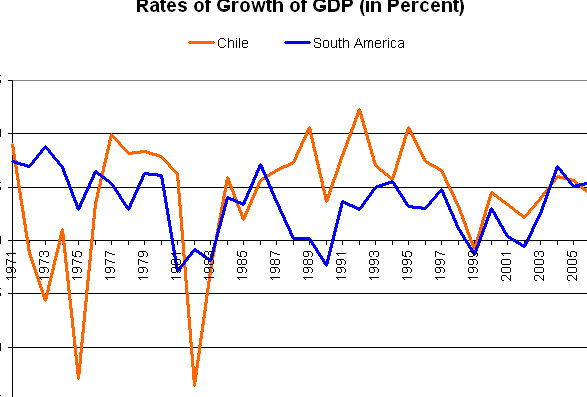
Neoliberalism: Weighing the Pros and Cons of Economic Liberalization

Neoliberalism has been a dominant economic ideology since the 1980s, shaping policies and practices around the world. It advocates for free markets, limited government intervention, and deregulation to promote economic growth and individual freedom. However, neoliberalism has also faced criticism for exacerbating inequality, undermining social welfare, and prioritizing profit over people. In this article, we will explore the pros and cons of neoliberalism, examining its impact on different aspects of society and evaluating its effectiveness in achieving its stated goals.
In the following sections, we will delve into the advantages and disadvantages of neoliberalism from various perspectives. We will discuss how neoliberal policies have contributed to economic growth and innovation, facilitating globalization and fostering entrepreneurship. Additionally, we will analyze the negative consequences of neoliberalism, such as widening income disparities, erosion of workers' rights, and environmental degradation. By examining both sides of the debate, we aim to provide a comprehensive understanding of the complexities surrounding neoliberalism and its implications for society.
Index
What is neoliberalism and how does it affect the economy?
Neoliberalism is an economic ideology that advocates for free markets, limited government intervention, and deregulation. It emerged in the late 20th century as a response to the perceived failures of Keynesian economics and the need for economic liberalization. Supporters argue that neoliberal policies promote economic growth, efficiency, and individual freedom. However, critics argue that neoliberalism exacerbates inequality, concentrates wealth in the hands of a few, and undermines social welfare programs.
Supporters of neoliberalism argue that free markets lead to increased competition, innovation, and efficiency. They believe that reducing government intervention and regulation allows businesses to thrive and create more jobs. Neoliberal policies also emphasize the importance of individual freedom and personal responsibility, empowering individuals to make their own economic choices.
On the other hand, critics of neoliberalism highlight its negative impact on society. They argue that neoliberal policies often prioritize the interests of corporations and the wealthy, leading to increased inequality. Deregulation and privatization can also result in the erosion of public services and social safety nets, leaving vulnerable populations at a disadvantage. Additionally, neoliberalism has been criticized for its focus on short-term profits and disregard for long-term environmental sustainability.
One of the key debates surrounding neoliberalism is its impact on economic growth. Supporters argue that free markets and deregulation lead to increased productivity and innovation, which in turn drive economic growth. They point to examples such as the United States and United Kingdom, where neoliberal policies have been credited with economic expansion. However, critics argue that neoliberalism can lead to financial instability and economic crises, citing events such as the 2008 global financial crisis as evidence.
Another point of contention is the role of the state in regulating the economy. Neoliberalism advocates for limited government intervention and favors market mechanisms to allocate resources. Supporters argue that this allows for more efficient allocation of resources and reduces bureaucratic interference. However, critics argue that a lack of government oversight can lead to market failures, such as monopolies and externalities, and that the state has a responsibility to protect the public interest.
In conclusion, the debate over neoliberalism is complex and multifaceted. Supporters argue that it promotes economic growth, efficiency, and individual freedom, while critics argue that it exacerbates inequality and undermines social welfare programs. Understanding the arguments for and against neoliberalism is crucial in shaping economic policy and addressing the challenges of the modern global economy.
Advantages and disadvantages of economic liberalization

Economic liberalization, often associated with neoliberalism, has been a highly debated topic in recent years. Supporters argue that it promotes economic growth, fosters innovation, and increases efficiency, while critics argue that it exacerbates inequality and undermines social welfare. Let's take a closer look at the arguments for and against neoliberalism.
Arguments for Neoliberalism
Proponents of neoliberalism argue that it brings several benefits to the economy:
- Increased economic growth: Neoliberal policies, such as deregulation and free trade, are believed to stimulate economic growth by encouraging competition and attracting foreign investment.
- Efficiency and innovation: Neoliberalism promotes market competition, which is seen as a catalyst for efficiency and innovation. It encourages businesses to constantly improve their products and services to stay competitive.
- Job creation: Supporters argue that neoliberal policies, such as labor market flexibility, can lead to increased job creation and reduce unemployment rates.
- Consumer choice: Neoliberalism emphasizes consumer choice and market freedom, allowing individuals to have a wide range of options when it comes to goods and services.
- Global integration: Neoliberalism advocates for open markets and international trade, which can lead to increased global integration and cooperation.
These arguments for neoliberalism focus on the potential economic benefits that can be achieved through market-oriented policies.
Arguments against Neoliberalism
Opponents of neoliberalism raise concerns about the negative consequences it may have:
- Inequality and poverty: Critics argue that neoliberal policies often exacerbate income inequality and contribute to the persistence of poverty, as they prioritize economic growth over social welfare.
- Undermining workers' rights: Neoliberal policies, such as labor market flexibility and deregulation, can weaken workers' rights and protections, leading to precarious employment and exploitation.
- Reduced public services: Neoliberalism promotes the privatization of public services, which critics argue can lead to reduced access, particularly for vulnerable populations.
- Financial instability: Neoliberal policies, such as financial deregulation, have been associated with increased financial instability and economic crises.
- Environmental degradation: Critics argue that neoliberalism prioritizes economic growth over environmental sustainability, leading to the exploitation of natural resources and increased pollution.
These arguments against neoliberalism highlight the potential negative social and environmental impacts that can arise from market-oriented policies.
It is important to note that the arguments for and against neoliberalism are not mutually exclusive, and the impact of neoliberal policies may vary depending on the specific context and implementation. In order to have a comprehensive understanding of the effects of neoliberalism, it is necessary to consider both its potential benefits and drawbacks.
Impact of neoliberal policies on income inequality
One of the key arguments against neoliberalism is its impact on income inequality. Critics argue that neoliberal policies, such as deregulation and privatization, tend to favor the wealthy and exacerbate income disparities. They believe that these policies create an uneven playing field, where the rich get richer and the poor get poorer.
Proponents of neoliberalism, on the other hand, argue that it can actually reduce income inequality in the long run. They contend that by promoting free markets and competition, neoliberal policies can lead to economic growth, which in turn can lift people out of poverty. They believe that the benefits of a growing economy will eventually trickle down to all segments of society.
However, critics argue that the trickle-down effect is often slow and uneven. They point to examples where neoliberal policies have led to increased concentration of wealth in the hands of a few, while the majority of the population continues to struggle. They argue that without adequate social safety nets and redistribution measures, neoliberalism can perpetuate income inequality.
It is important to note that the impact of neoliberal policies on income inequality can vary depending on the specific context and implementation. Some countries have successfully implemented neoliberal reforms while maintaining social protections, resulting in a more equitable distribution of wealth. Others, however, have experienced widening income gaps and social unrest.
In conclusion, the impact of neoliberal policies on income inequality is a complex and contentious issue. While proponents argue that neoliberalism can lead to economic growth and reduce poverty in the long run, critics contend that it often exacerbates income disparities. The key lies in finding a balance between economic liberalization and social protection to ensure that the benefits of growth are shared by all members of society.
Is neoliberalism the key to economic growth or a recipe for disaster?
Neoliberalism, also known as economic liberalism, is a controversial economic ideology that advocates for limited government intervention and promotes free markets, deregulation, privatization, and globalization. Supporters argue that neoliberal policies can lead to economic growth, increased efficiency, and individual freedom. However, critics raise concerns about inequality, environmental degradation, and the erosion of social safety nets. Let's explore the arguments for and against neoliberalism.
Arguments for Neoliberalism
- Economic Growth: Proponents of neoliberalism argue that free markets and competition drive economic growth. They believe that by reducing government regulation and allowing market forces to determine prices and allocate resources, countries can achieve higher levels of productivity and innovation.
- Efficiency: Neoliberalism emphasizes the importance of efficiency in resource allocation. Advocates argue that market mechanisms, such as price signals and competition, can allocate resources more efficiently than government planning. They believe that removing barriers to trade and promoting competition can lead to lower prices, improved quality, and increased consumer choice.
- Individual Freedom: Neoliberalism places a strong emphasis on individual freedom and personal responsibility. Supporters argue that reducing government intervention allows individuals to make their own choices and pursue their own interests, leading to greater autonomy and self-determination.
Arguments against Neoliberalism
- Inequality: One of the main criticisms of neoliberalism is its potential to exacerbate income and wealth inequality. Critics argue that when markets are left unchecked, wealth tends to concentrate in the hands of a few, leading to a widening wealth gap and social disparities.
- Environmental Degradation: Neoliberal policies often prioritize economic growth over environmental concerns. Critics argue that this focus on economic expansion can lead to the overexploitation of natural resources, pollution, and climate change. They advocate for stronger environmental regulations and sustainable development.
- Erosion of Social Safety Nets: Neoliberalism advocates for limited government intervention, including reduced spending on social programs. Critics argue that this can lead to the erosion of social safety nets, leaving vulnerable populations without adequate support and exacerbating social inequalities.
As with any complex economic ideology, the debate around neoliberalism is nuanced and multifaceted. While proponents highlight the potential for economic growth, efficiency, and individual freedom, critics raise concerns about inequality, environmental degradation, and the erosion of social safety nets. It is essential to consider both sides of the argument and carefully evaluate the impact of neoliberal policies on various aspects of society.
Frequently Asked Questions
What is neoliberalism?
Neoliberalism is an economic ideology that promotes free market capitalism, limited government intervention, and individual freedom.
What are the pros of neoliberalism?
Proponents argue that neoliberalism leads to economic growth, efficiency, and innovation.
What are the cons of neoliberalism?
Critics argue that neoliberalism exacerbates inequality, undermines social safety nets, and prioritizes profits over people.
Is neoliberalism the same as globalization?
No, although neoliberal policies often coincide with globalization, they are not the same. Neoliberalism refers to specific economic policies, while globalization is a broader phenomenon that encompasses various dimensions of interconnectedness.
 The Pros and Cons of Bioethics: Examining the Ethical Dilemmas
The Pros and Cons of Bioethics: Examining the Ethical Dilemmas Assessing the Pros and Cons: Evaluating the Impact and Benefits of the European Union
Assessing the Pros and Cons: Evaluating the Impact and Benefits of the European UnionSi leer artículos parecidos a Neoliberalism: Weighing the Pros and Cons of Economic Liberalization puedes ver la categoría Science and Technology.






Leave a Reply